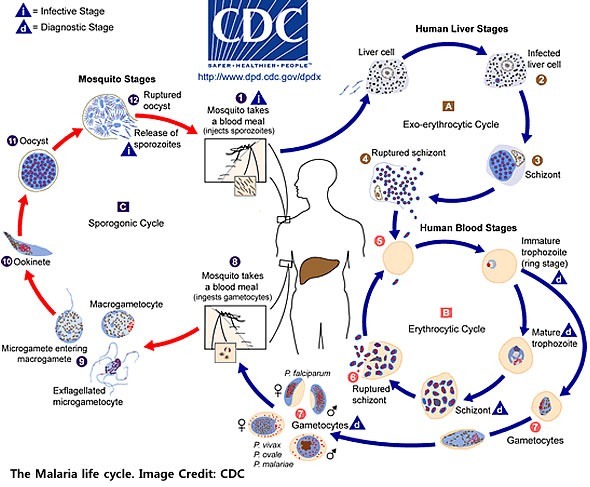Australian researchers have potentially created a ‘world-first’ malaria vaccine that could save millions of lives. According to Queensland Australian of the Year 2010, Professor Michael Good, of Griffith University, his team have found a way to completely protect mice against multiple strains of malaria. The team hopes to begin human trials over the next year to see if it produces a similar response.
Professor Good said he was confident it would work in humans and provide near full protection against the blood-borne disease that kills about 1 million people each year. Malaria is caused by a parasite that is passed through the bite of infected mosquitoes.
 Good explained that a totally protective vaccine would be a huge breakthrough because the leading vaccine being trialled in Africa, RTS,S, provides only 30 to 50 per cent protection for a few months. He said other scientists had been able to protect mice against a single strain of the disease, but not multiple strains.
Good explained that a totally protective vaccine would be a huge breakthrough because the leading vaccine being trialled in Africa, RTS,S, provides only 30 to 50 per cent protection for a few months. He said other scientists had been able to protect mice against a single strain of the disease, but not multiple strains.
Called PlasProtecT, the vaccine will be unveiled at Friday's opening of Griffith University's Institute for Glycomics' Laboratory of Vaccines for the Developing World. PlasProtecT involved treating whole malaria parasites with a chemical treatment that puts them to sleep. When mice were given a dose of these sleeping parasites, it stimulated an immune response that protected them against the disease. Professor Good explained, “The vaccinated mice behave like nothing's happened to them. They get a very, very low number of parasites in their blood which rapidly clear over a period of a week or so and then they are fine.”
Professor Good added that if trials of the vaccine went well, it could be produced as a single injection in Queensland within five to 10 years. “If successful, we'll be able to make many many doses of the vaccine in our facilities up here at Griffith University. It doesn't require much technology, which means the vaccine would be very cheap to produce, which is good for poor countries,” he said.
Prof Good's team includes 13 post-doctoral researchers, assistants and students working in collaboration with a team of Australian and international researchers.